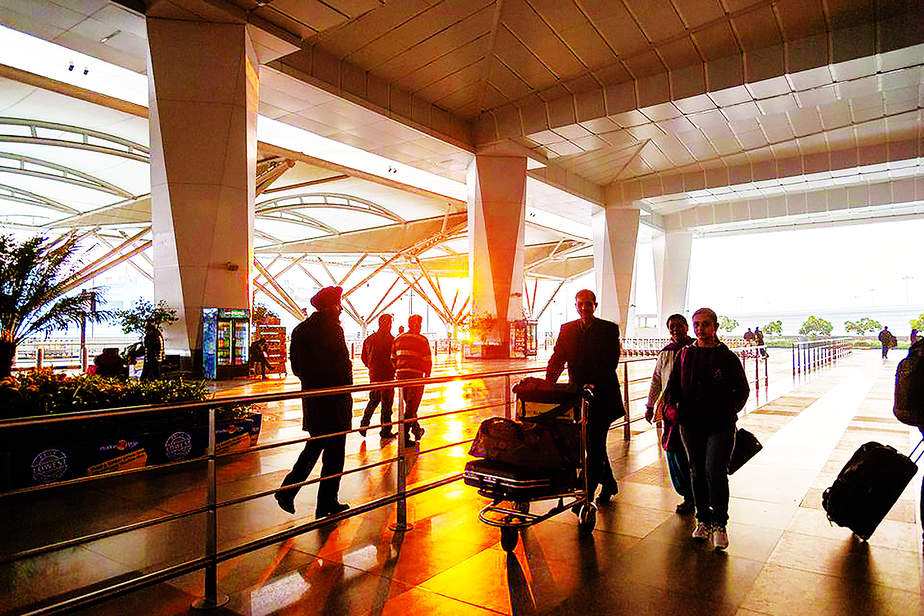Many flyers don’t know the difference between refund and compensation. The airlines may not want to tell you, so here’s the lowdown
It’s taking on monstrous proportions. Indian civil aviation, with 10 crore air passengers, is the third largest in the world in terms of air traffic. In a decade, it might be the biggest. But that doesn’t mean it’s the best. In this unprecedented growth story, the weakest link is passenger service. Indian flyers are the least informed, therefore, are prime candidate to be taken for a ride by the airlines.
Take the recent case when 11 planes of the India’s top budget airlines, IndiGo and GoAir—who between them, carry half of domestic air passengers—were grounded by the aviation regulator Director General Civil Aviation (DGCA). These A320Neo planes run on the Pratt & Whitney engine, which was found to be faulty, therefore, a potential risk. As per the March 12 order of the Director of the DGCA, ‘A320Neos fitted with PW1100 engines beyond ESN 450 have been grounded with immediate effect.’ This harsh step was necessitated when an IndiGo flight bound for Lucknow was forced to land in Ahmedabad within 40 minutes of its flight due to a mid-air engine failure.
This led to cancellation of dozens of flights in the next couple of weeks, causing severe inconvenience to thousands of flyers all over the country. Airports were full of stranded, clueless passengers. The affected cities were Delhi, Mumbai, Chennai, Kolkata, Hyderabad, Bangalore, Patna, Srinagar, Bhubaneswar, Amritsar, Srinagar and Guwahati, among others. IndiGo alone was forced to cancel 47 of its 1,000-odd flights per day, while GoAir had to cancel 18 flights out of 230 flights per day.

IndiGo issued a statement clarifying that the affected passengers can either choose another flight at no additional cost or cancel their booking and get a full refund without any cancellation charges. “IndiGo has cancelled certain flights due to the grounding of our aircraft further to the DGCA directions which has been issued in the interest of safety…While we understand that this may cause inconvenience to some of our passengers, given that we have multiple flights to the same destination, we are proactively re-accommodating all our affected passengers on other flights,” the statement elaborated.
As per the new guidelines announced by the DGCA in 2016, an airline has to pay up to Rs 10,000 to a passenger if a flight is cancelled or delayed beyond two hours as compensation. Also, the compensation for denying boarding to a passenger is up to Rs 20,000. In most cases, it’s conveniently ignored by the airline, unless claimed. DGCA periodically comes out with the figures of passengers who had to deal with flight cancellations, delays and denied boarding due to overbooking and the compensation thereof. The figures for the first four months of 2017 is Rs 22 crore. Despite this, many flyers can’t even distinguish between a refund and a compensation.
Unlike in Europe and the US, apart from a regulatory body, there are various associations and companies, like Euclaim, that are quick to provide help to passengers. There’s only such organisation in India and customer awareness is also low. Though some beginning has been made, much needs to be done.
Refundme.in is a passenger’s protection and compensation management company that helps about 100 passengers every. Co-founder and MD Akanksha Anshu asks a pertinent question, “Why did DGCA have to intervene and bar all flights with immediate effect when airlines have guidelines to do a health check-up of the flight with a qualified aircraft maintenance engineer? Does that mean airlines are commercialised to an extent that they are not bothered about the safety of the flyers and their crew?”
In the current scenario, consumers are stranded, inconvenienced, and don’t know how to get their refund or compensation. The attitude of the airlines and their staff is, in fact, a hurdle in securing rightful compensation. Whereas passengers’ rights are integral to safe flying.





